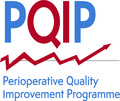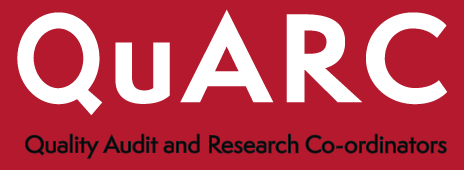Current Projects
Audits and QI

The National Audit Projects study anaesthesia-related complications of low incidence that are potentially serious for patients and important to patients and anaesthetists.
The NAPs are "internationally important reports with a potentially significant impact on patient outcome and experience during and after anaesthesia and surgery" (Moppett, 2013).
In addition to 'shining a light' on the topic, the NAPs include recommendations for clinical practice and research. The NAPs are intended to examine, report on and drive improvements in practice.
Click the NAP Icon for further information

NELA aims to enable the improvement of the quality of care for patients undergoing emergency laparotomy, through the provision of high quality comparative data from all providers of emergency laparotomy.
NELA is being carried out by the National Institute of Academic Anaesthesia's Health Services Research Centre (HSRC) on behalf of the Royal College of Anaesthetists (RCoA), in conjunction with surgical and other key stakeholders.
Please keep in mind that NELA is on ongoing audit and that the data collection process continues as usual. We would like to thank you for all your continued hard work during the data entry process of this national audit.
Click the NELA Icon for further information

Around 10 million operations are performed in the NHS each year. What happens to these patients? What are the complication rates? What is patient recovery like? Are we providing a good service?
These are some of the questions that the Perioperative Quality Improvement Programme (PQIP) wants to answer. The aim is to look at perioperative care of patients undergoing major non-cardiac surgery and measure complication rates, failure to rescue and patient reported outcomes. We hope to improve patient outcomes across the UK, reducing variation in processes of care and supporting implementation of best practice. To achieve this multidisciplinary involvement is absolutely vital - nurses, surgeons, anaesthetists, managers and patients all working together.
Click the PQIP Icon for further information
Clinical Studies

CASAP aims is to characterise the type and quality of care being delivered to children undergoing urgent / emergency abdominal surgery (including appendicectomy). CASAP will be a prospective observational cohort study running up until January 31st 2022.
With your help, we aim to enroll all children between the ages of 12 months and 16 years who undergo an emergency abdominal surgical procedure during the 6 month study period.
This will be a consenting research study, which will be adopted onto the NIHR portfolio as a result of generous funding from the Association of Paediatric Anaesthetists - therefore recruitment of patients will count towards your hospital's NIHR targets and bring research money in to support your future work.
Click the CASAP Icon for further information

SNAPs are short observational clinical research studies examining an area of importance for patient benefit, which aim to recruit a large number of patients from as many NHS hospitals as possible in a short period of time. An additional important feature of SNAPs is engagement of "grass-roots" anaesthetists, particularly trainees, in delivering the studies.
SNAP1 studied patient reported outcomes after anaesthesia: specifically, patient satisfaction after anaesthesia and patient-reported awareness.
SNAP-2 studied the epidemiology of perioperative risk and outcome, and critical care referral and admission after inpatient surgery in the UK. It also aims to examine whether planned postoperative critical care admission is effective as an intervention to reduce postoperative morbidity.
SNAP3 is an observational cohort study that aims to describe the impact of frailty and delirium, and their management, on outcomes following surgery in older people. It is provisionally scheduled to begin in Autumn 2021.
Click the SNAPs Icon for further information
We use clinical studies and trials to provide information which helps us to understand how patients become unwell, and how best to prevent and treat this when it happens.
These studies always involve patients but can be very different in the way they are designed. Observational studies involve watching what happens to patients and gathering information about them, whilst interventional studies usually test some form of treatment to see how patients respond. The latter are more commonly described as clinical trials.
Clinical studies vary widely in size from fewer than ten to hundreds of thousands of patients. It is usually better to include as many people as possible so that the findings better represent all patients. However, this may be difficult when researchers study rare diseases or need to make complex measurements.
At the NIAA Health Services Research Centre, we are mainly focussed on running clinical studies of large numbers of patients using very simple methods. This approach helps us to understand how things work in the normal day to day life of the National Health Service. We support and lead observational studies of patient outcomes after surgery, and clinical trials of simple treatments that help to ensure more patients make the best possible recovery after their operation. Because surgery is such a widely used treatment, we believe that even small improvements in how we work can benefit the lives of many thousands of people each year.












